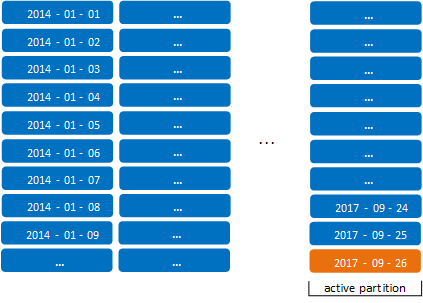

The Snowflake LIKE ALL allows case-sensitive matching of an input string based on comparison with one or more patterns. select rlike('98','\\d') is_valid_num from dual It supports more complex matching conditions than LIKE.įollowing example demostrates the telephone number validation. The RLIKE is similar to the LIKE function, but with POSIX extended regular expressions instead of SQL LIKE pattern syntax. Both inputs must be text expressions.įollowing is the syntax of RLIKE statement. The Snowflake RLIKE returns true if the subject matches the specified pattern. Select * from S_STUDENT where city ILIKE '%angalore' Select city like '%angalore' as match from S_STUDENT select * from S_STUDENT where city LIKE '%angalore' You can prepend the NOT keyword to negate the result return by LIKE condition. The LIKE performs a case-sensitive match and ILIKE performs a case-insensitive match. The LIKE pattern matching searches for a pattern in entire string values provided in the input string. The like compares a string expression such as values in the column.įollowing is the syntax of Snowflake LIKE statement. The pattern uses the wildcard characters % (percent) and _ (underscore). The Snowflake LIKE allows case-sensitive matching of strings based on comparison with a pattern. Now, let us check these operators in brief. Pattern matching conditions are mainly used in WHERE conditions.įollowing are the commonly used pattern matching operators. These conditions are particularly important when you need to search string patterns in your database column values.
#Ilike vertica software#
ORA-15081: failed to submit an I/O operation to a diskĬause: GID mismatch between Oracle software and the grid (ASM) software.A pattern-matching operator searches a string for a pattern specified in the conditional expression and returns either Boolean (true/ false) or matching value if it finds a match. ORA-01115: IO error reading block from file (block # ) Problem: you are trying to run a simple ddl command and encounter the following error messages: ORA-00604: error occurred at recursive SQL level 1 This is caused by a small jdbc connection buffer, usually when trying to map a table with many columns Solution: Add to the vkconfig utility an explicit jdbc connection string to the vertica database and increase the buffer to 4M The current ResultSet must be fully iterated through or closed before another statement can execute.
#Ilike vertica driver#
The driver cannot finish reading the current ResultSet because its buffer (8192 bytes) is full. (100102) Statement “SELECT kpartition FROM “kafka_config”.kafka_offsets_topk WHERE ktopic = ? AND target_schema ilike ? AND target_table ilike ?” cannot execute because the driver has not finished reading the current open ResultSet. The current ResultSet must be fully iterated through or closed before another statement can execute.Īt .ensureNotInLRS(Unknown Source)Īt .prepareImpl(Unknown Source)Īt .prepare(Unknown Source)Īt .SPreparedStatement.(Unknown Source)Īt 4.S4PreparedStatement.(Unknown Source)Īt 4PreparedStatementImpl.(Unknown Source)Īt .createPreparedStatement(Unknown Source)Īt .SConnection.prepareStatement(Unknown Source)Īt .(CountedConnection.java:69)Īt .(TopicConfigurationCLI.java:154)Ĭaused by: :

“SELECT kpartition FROM “kafka_config”.kafka_offsets_topk WHERE ktopic = ? AND target_schema ilike ? AND target_table ilike ?”Ĭannot execute because the driver has not finished reading the current open ResultSet.

Solution: Make sure that “public” is part of the search path for user “dbadmin” 圎rrorException: (3457)ĮRROR: Function KafkaSource() does not exist, or permission is denied for KafkaSource()Īt .buildException(Unknown Source)Īt .executeSimpleProtocol(Unknown Source)Īt .execute(Unknown Source)Īt .SStatement.executeNoParams(Unknown Source)Īt .SStatement.execute(Unknown Source)Īt .(TopicConfigurationCLI.java:72)Īt .(TopicConfigurationCLI.java:831)Īt .(TopicConfigurationCLI.java:843)Ĭaused by: .Synta圎rrorException: (3457) ERROR: Function KafkaSource() does not exist, or permission is denied for KafkaSource()


 0 kommentar(er)
0 kommentar(er)
